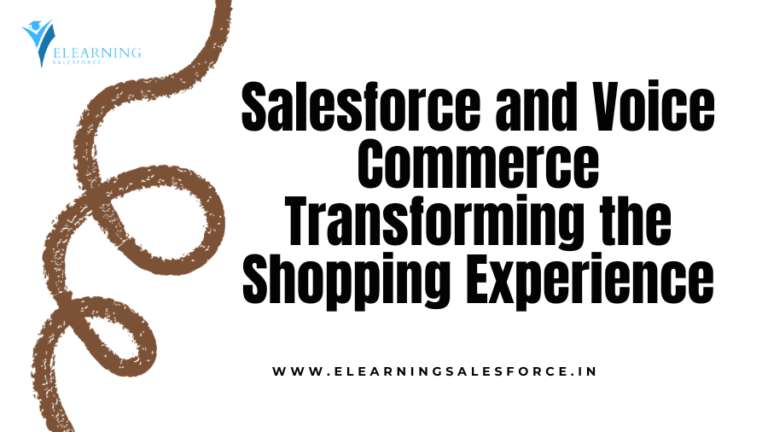Salesforce is a leading customer relationship management (CRM) platform that offers a wide range of Salesforce products and solutions designed to streamline business processes, automate tasks, and enhance customer engagement. With its diverse suite of salesforce products, Salesforce caters to the needs of businesses of all sizes and industries, from sales and marketing to customer service and analytics. In this comprehensive guide, we will delve into the various Salesforce products, their features, use cases, and benefits, providing a comprehensive overview of Salesforce’s suite of solutions.
Unlocking Success with Salesforce Products: Empower Your Business with the Ultimate Cloud Solutions
Sales Cloud is Salesforce products and is designed to streamline sales processes and optimize sales performance. It offers a range of features, including contact and lead management, opportunity management, email automation, opportunity scoring, and forecasting. Sales Cloud also provides comprehensive analytics and reporting capabilities, allowing sales teams to gain valuable insights into their sales pipeline and make data-driven decisions. With Sales Cloud, sales teams can collaborate more effectively, close deals faster, and improve overall sales productivity.
Use Cases: Sales Cloud is ideal for sales teams across industries, including B2B and B2C businesses. It caters to sales professionals who need a unified platform to manage leads, opportunities, and customer interactions. Sales Cloud is also suitable for sales managers who require advanced analytics and reporting capabilities to monitor team performance and drive sales strategies.
- Improved Sales Productivity: Sales Cloud provides a unified platform for sales teams to manage leads, opportunities, and customer interactions, streamlining sales processes and improving productivity.
- Enhanced Sales Collaboration: Sales Cloud allows sales teams to collaborate more effectively, share insights, and work together towards closing deals.
- Data-driven Decision Making: Sales Cloud’s robust analytics and reporting capabilities provide valuable insights into sales performance, allowing sales teams to make data-driven decisions and optimize sales strategies.
Service Cloud is Salesforce’s solution for customer service and support. It provides a range of features, including case management, omni-channel support, knowledge management, and self-service portals. Service Cloud also offers AI-powered chatbots, which enable businesses to automate routine customer inquiries and provide personalized support. With Service Cloud, businesses can deliver exceptional customer service experiences, resolve customer issues faster, and improve customer satisfaction.
Use Cases: Service Cloud is ideal for customer service and support teams across industries, including businesses with high customer engagement and support requirements. It caters to customer service professionals who need a comprehensive platform to manage customer inquiries, cases, and knowledge base. Service Cloud is also suitable for businesses looking to leverage AI-powered chatbots to automate customer support and reduce response times.
- Enhanced Customer Service: Service Cloud provides a unified platform for customer service teams to manage cases, inquiries, and knowledge base, enabling them to deliver exceptional customer service experiences.
- Automation of Routine Tasks: Service Cloud’s AI-powered chatbots enable businesses to automate routine customer inquiries, reducing response times and improving efficiency.
- Improved Customer Satisfaction: With Service Cloud, businesses can resolve customer issues faster, leading to improved customer satisfaction and loyalty.
Salesforce Marketing Cloud:
Marketing Cloud is Salesforce’s solution for marketing automation and email marketing. It offers a range of features, including email automation, customer journey mapping, social media management, and analytics. Marketing Cloud allows businesses to create personalized marketing campaigns, automate marketing processes, and analyze campaign performance. It also enables businesses to engage with customers across multiple channels, including email, social media, mobile, and web.
Use Cases: Marketing Cloud is ideal for marketing teams across industries, including businesses looking to automate their marketing processes, engage with customers across multiple channels, and analyze campaign performance. It caters to marketing professionals who need a robust platform to create personalized marketing campaigns, automate marketing processes, and gain insights from campaign analytics. Marketing Cloud is also suitable for businesses looking to enhance customer engagement and loyalty through targeted marketing efforts.
Key Benefits:
- Marketing Automation: Marketing Cloud allows businesses to automate marketing processes, such as email campaigns and customer journeys, freeing up time and resources while ensuring consistent and personalized communication with customers.
- Multi-channel Marketing: Marketing Cloud enables businesses to engage with customers across multiple channels, including email, social media, mobile, and web, providing a seamless and personalized experience for customers.
- Data-driven Marketing: With Marketing Cloud’s robust analytics and reporting capabilities, businesses can gain insights into campaign performance, customer behavior, and preferences, allowing them to optimize marketing strategies and improve ROI.
Salesforce Commerce Cloud:
Commerce Cloud is Salesforce’s solution for e-commerce and digital commerce. It offers a range of features, including online store management, order management, product management, and AI-powered product recommendations. Commerce Cloud enables businesses to create personalized and seamless online shopping experiences, manage orders and inventory, and drive sales across multiple channels.
Use Cases: Commerce Cloud is ideal for businesses looking to launch or optimize their e-commerce operations, including retailers, manufacturers, and direct-to-consumer brands. It caters to e-commerce professionals who need a robust platform to manage online stores, orders, and inventory, and provide personalized shopping experiences for customers.
Key Benefits:
- Seamless E-commerce Experience: Commerce Cloud enables businesses to create personalized and seamless online shopping experiences across multiple channels, driving customer engagement and loyalty.
- Order and Inventory Management: Commerce Cloud provides robust order and inventory management capabilities, allowing businesses to streamline their fulfillment processes and ensure timely and accurate order deliveries.
- AI-powered Product Recommendations: Commerce Cloud’s AI-powered product recommendations feature helps businesses deliver personalized product recommendations to customers, increasing cross-selling and upselling opportunities.
Salesforce Community Cloud:
Community Cloud is Salesforce’s solution for building online communities and portals for customers, partners, and employees. It offers a range of features, including community building tools, content management, collaboration, and analytics. Community Cloud enables businesses to create branded and engaging communities where customers, partners, and employees can connect, collaborate, and access resources and information.
Use Cases: Community Cloud is ideal for businesses looking to build and nurture online communities to improve customer engagement, enhance partner relationships, and foster employee collaboration. It caters to community managers who need a robust platform to create and manage online communities, and provide a seamless and branded experience for community members.
Key Benefits:
- Improved Customer Engagement: Community Cloud enables businesses to build online communities where customers can connect, collaborate, and access resources and information, enhancing customer engagement and loyalty.
- Enhanced Partner Relationships: Community Cloud helps businesses strengthen their partner relationships by providing a collaborative platform for partners to share information, collaborate, and access resources.
- Employee Collaboration: Community Cloud provides a platform for employees to collaborate, share knowledge, and access resources, enhancing employee productivity and engagement.
Salesforce Einstein:
Einstein is Salesforce’s artificial intelligence (AI) platform that is embedded across its suite of products to deliver advanced analytics, insights, and automation capabilities. Einstein uses machine learning and predictive analytics to analyze data, identify patterns, and make recommendations to drive intelligent and personalized customer interactions.
Use Cases: Einstein is ideal for businesses looking to leverage AI to automate and optimize their sales, marketing, and customer service processes. It caters to data-driven professionals who need advanced analytics and insights to make data-driven decisions and deliver personalized customer experiences.
Key Benefits:
- Advanced Analytics and Insights: Einstein uses machine learning and predictive analytics to analyze data and provide actionable insights to drive data-driven decisions.
- Personalized Customer Experiences: Einstein helps businesses deliver personalized customer experiences by providing recommendations and automating processes based on customer data and behavior.
What is the major product of Salesforce?
Salesforce offers a range of products and solutions, but one of its major and foundational products is “Sales Cloud.”
Sales Cloud is a customer relationship management (CRM) platform designed to help businesses manage their sales processes, customer interactions, and sales data. It provides tools and features for lead management, opportunity tracking, contact and account management, sales forecasting, reporting, and more. Sales Cloud helps sales teams streamline their activities, improve customer relationships, and drive revenue growth.
While Sales Cloud is a significant product, it’s worth noting that Salesforce offers a comprehensive suite of products beyond just CRM, including Service Cloud (for customer service and support), Marketing Cloud (for marketing automation), Commerce Cloud (for e-commerce), and many others. Each of these products is designed to address specific business needs and can be used individually or integrated to create a unified platform for managing various aspects of customer engagement and business operations.




